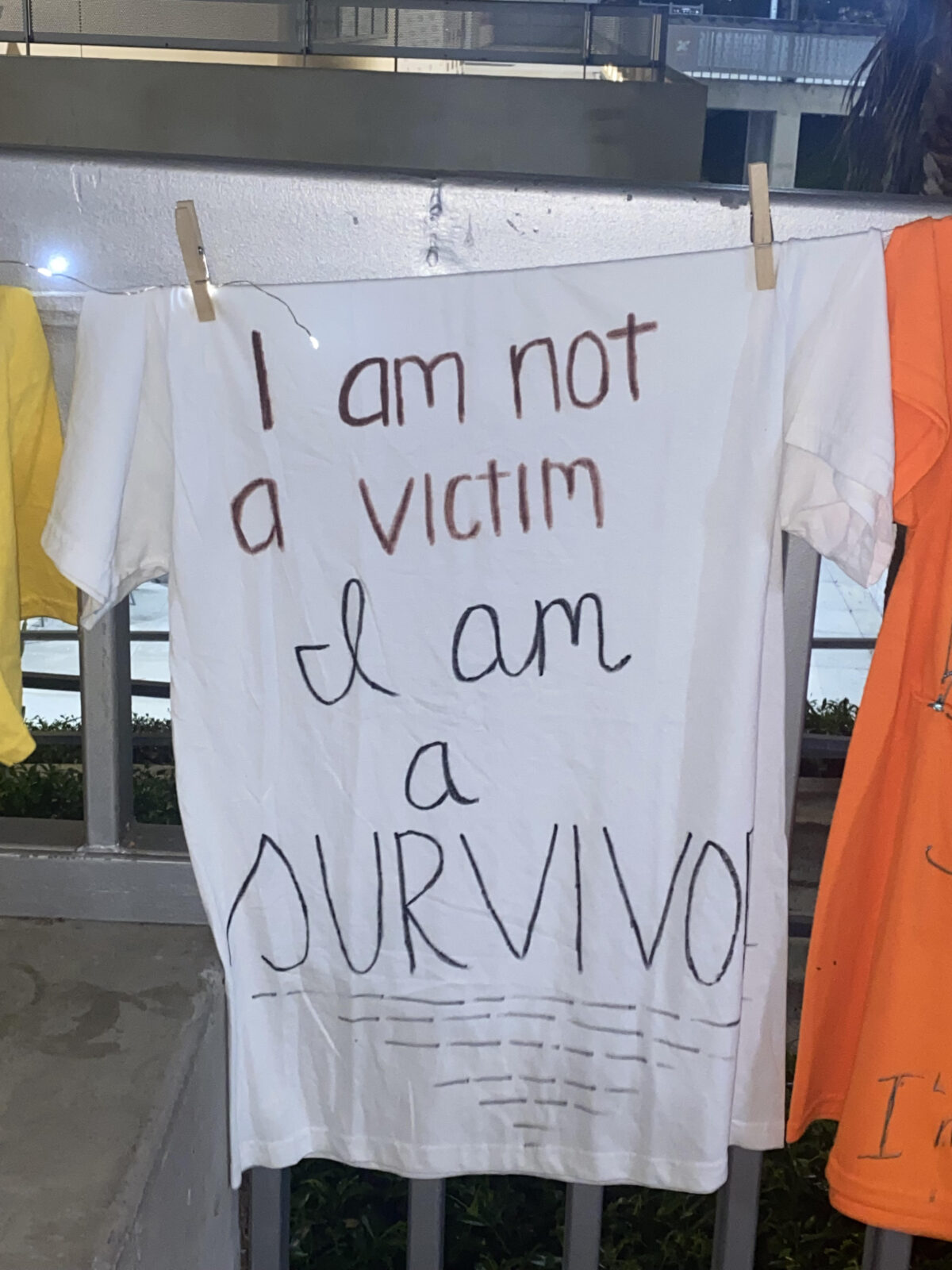Survivors stand against sexual assault to raise awareness across campus.
By Vicky Pineda, Executive Editor & Mia Garcia, Staff Reporter
Editor’s note: Content warning – the following story contains references to violence and sexual assault. Names of the survivors quoted have been changed to protect their privacy.
CSUDH will commemorate Sexual Assault Awareness month in April with a series of events aimed at dispelling myths and promoting on-campus resources for survivors. Event organizers also hope this month will encourage students, staff, and faculty at Dominguez Hills to learn more about allyship and how to ensure a safe community for all.
According to Megan Tagle Adams, the director of both the Women’s and Multicultural Resource Center, it’s important for the campus community to know that sexual violence is a real threat on a college campus and “not something that just happens elsewhere.”
“It’s not something that happens in the abstract,” Tagle Adams said. “It’s something that is happening every day, and it’s impacting people on our campus and people in our communities.”
Survivors of sexual assault sometimes carry feelings of shame, and some people still view the topic as taboo, according to Tagle Adams. She said there are a lot of myths surrounding the topic and stereotypes about survivors – and a lot of victim blaming.
“[People say] ‘that only happens to girls who don’t watch their drinks,’ [or] ‘she probably wanted to hook up with him, but then felt ashamed afterward,’ or, ‘oh, I mean, I hate to be that person but what was she wearing?’ Or, ‘is that even a thing that happens to guys?’ So, there’s a lot of myths that are still out there,” Tagle Adams explained.
The events this month at CSUDH intend to center the stories of survivors while creating a space for people to challenge the idea of the “perfect victim.” Workshop challenges myths surrounding assault
Misconceptions, myths, and stereotypes about sexual violence persist “due to the lack of information about the topic,” said Mayra Romo, the program director for the CSUDH Center for Advocacy, Prevention, and Empowerment (CAPE).
“If the victim is blamed then it normalizes perpetrator behavior,” Romo said. According to Romo, the campaign has been promoted at college campuses around the world for decades.
In partnership with the Peer Prevention Education Coalition, the center hosted a “Little Black Dress Campaign” workshop on Apr. 11. The event explored how misinformation and misunderstanding of sexual assault can extend beyond survivors to impact an entire community.
“These myths… [are] a form of oppression,” and it contributes to collective trauma,” Romo said. “Start by believing instead of doubt – share information and messages that challenge the misconceptions of sexual assault and interrupting language.”
Toros share stories, offer support to each other
Following the Little Black Dress Campaign workshop, survivors of sexual assault were invited to share their stories with their fellow Toros as part of the “Take Back the Night” rally. Romo said the purpose of the open mic portion of the rally was to foster a supportive, healing environment for survivors and the greater campus community.
Speakers had the option to share their story publicly or privately – eight people stepped up. Those who chose to share privately were able to do so without other attendees recording their speech or taking photos.
“Unfortunately, I was taken advantage of,” said one survivor, “Jay.” “I know now that I was raped and it was not something I wanted, and I just wanted to come to terms with that.”
Another survivor, “Liz,” said she was “empowered” to share her own experience after hearing Jay’s story.
“The only thing I remember is, that I have no idea how I made it into bed,” Liz said. “I have no idea of anything, but I woke up next to a stranger in my own bed.”
Each speaker received a rose as a token of their bravery and courage. Afterward, rally goers marched across campus, chanting “Toros, unite! Take back the night!” and “How we dress does not mean ‘Yes’!”
Elena Hernandez, a third-year sociology major, said she attended the event to support her fellow students.
“Not a lot of people want to speak up, and it’s important because voices are being heard in any gender and in any age group,” Hernandez said.
Tele’sia Mau’u, an assistant coach for the women’s basketball team, said society needs to do more to support survivors and hold accountable perpetrators of sexual violence.
“Stop victim blaming and protecting people that assault others,” Mau’u said. “There is so much protection for the wrong people and for the wrong reasons.”

